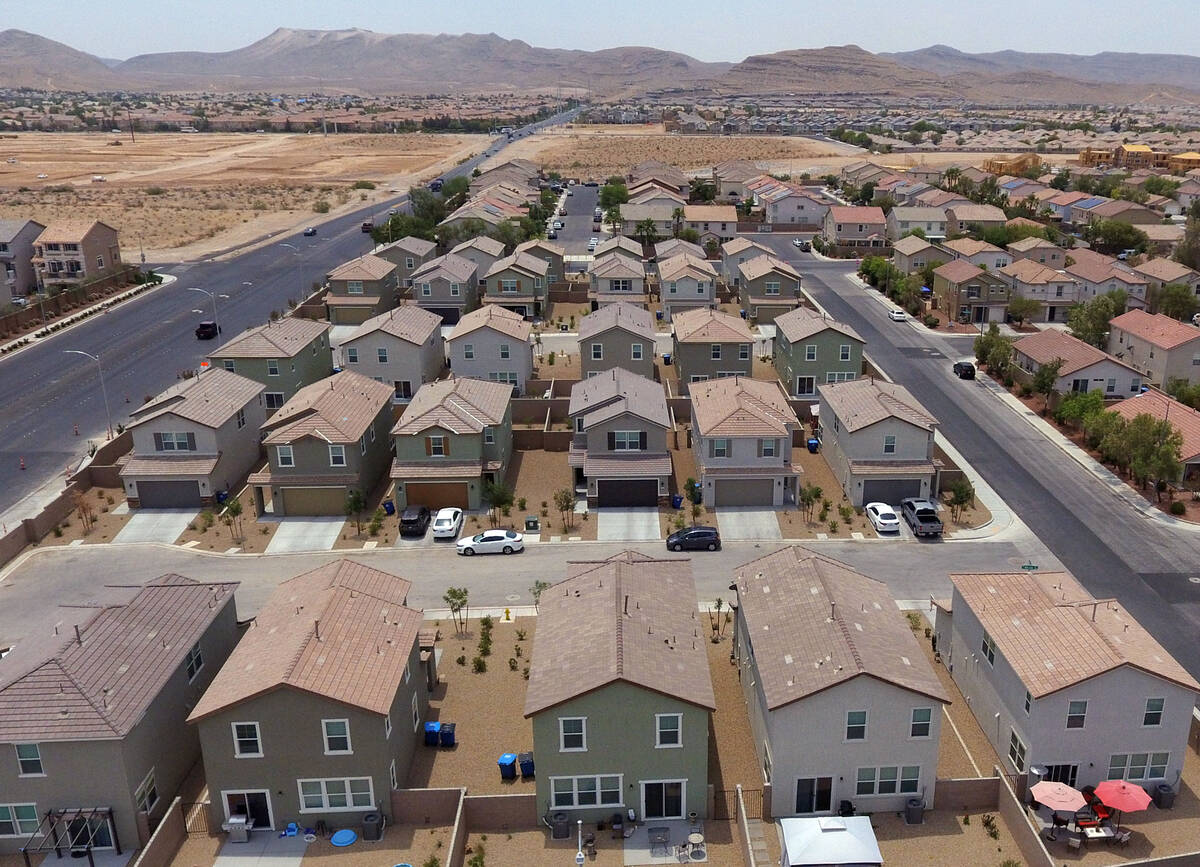Need help with rent? Facing eviction? Here’s where to get help
Rising rent prices, California buyers pricing out locals and affordable housing shortages are leaving more and more Southern Nevadans struggling to keep a roof over their heads.
Nevada is short more than 80,000 affordable rental homes for extremely low income households, according to the National Low Income Housing Coalition.
If you’re struggling to pay rent, on the brink of eviction or need help paying your utility bill, there may be help available.
Economic Opportunity Board
For those who are behind on one month’s rent, the Clark County Economic Opportunity Board may be able to help. To qualify, you must have a source of income, a Nevada ID and documentation of hardship.
The application for the program opens on EOB’s website at 8 a.m. on the first day of the month. Applicants will be notified if they received aid 30 days after submitting the application.
It’s important to note that the program provides a stipend equal to the fair market value of a rental property similar to the applicant’s, not the applicant’s rent amount, and it can’t be used to cover late fees.
Clark County
Clark County offers rental assistance programs for residents that are on a fixed income or are at risk of eviction.
The eviction prevention program is available to Clark County residents that are currently behind on rent and whose monthly household income is under a certain threshold.
For a household of one, an individual must have a monthly income under $3,035 to qualify for aid. For a household of four, the total monthly income for the household must be under $4,330.
The county also offers a program for Clark County residents that are on a fixed income. To qualify, an individual must provide documentation of a rent increase and must have a current eviction filed against their household.
To qualify for the program, a household of one must not make a monthly income more than $2,530. For a household of four, that limit is $3,609.
The aid from both programs can be used for rent, utilities or relocation assistance, which includes application fees, security deposits, administration fees or cleaning deposits.
If you’re interested in applying for either program, you can do so here.
Community aid
Aid for AIDS of Nevada, or AFAN for short, offers short-term emergency financial assistance for rent, mortgage and utility bills for individuals that are HIV/AIDS positive with an income at or under 80 percent of the median income. Those interested in more information can contact AFAN can at 702-382-2326 or frontdesk@afanlv.org.
HopeLink of Southern Nevada has several programs to assist residents of Henderson and Clark County.
For low income Henderson residents seeking to relocate to a different rental unit, the organization can provide funds to cover a security deposit and rental subsidy through its Tenant Based Rental Assistance Program.
HopeLink also provides rental assistance for Henderson residents who were financially impacted by the COVID-19 pandemic. For individuals living on a fixed income that are over the age of 62 or who are disabled, the organization also may be able to assist with a rental subsidy.
Those interested in any of HopeLink’s programs can find out more by calling their office Monday through Thursday from 8 a.m. to 5:30 p.m. at 702-566-0576.
For those facing eviction or foreclosure, the Legal Aid Center of Southern Nevada offers a free 15 minute phone consultation with a volunteer attorney. To make an appointment, click here.
Utility payments
For Southern Nevadans 62 or older struggling to pay their electric bill, Project REACH can help. The program, which is administered by the United Way of Southern Nevada, can help pay a late utility bill up to $300 once a year. Learn more about the program here.
The state Energy Assistance Program, which is funded partly by federal dollars, provides assistance to low-income people. Households that qualify can receive an annual, one-time benefit that is paid directly to an energy provider.
The state program also provides assistance for the cost of water and sewer bills.
A household’s monthly income can’t exceed 150 percent of the federal poverty guideline. You can find out more about the program here.
For Southwest Gas customers that are low income or are facing an unexpected financial difficulty, the Energy SHARE program may be able to help. Those interested in the program can find out more information on HELP of Southern Nevada’s website.
Something more affordable?
If you’re looking for a different rental property that may be more affordable, NVHousingSearch.org might be a good place to start.
The website, which is maintained and sponsored by the Nevada Housing Division, features detailed up-to-date listings of rental properties.
The Southern Nevada Regional Housing Authority also provides some subsidized housing. The public agency accepts applications for properties that are currently open and maintains a waitlist for some affordable housing properties.
Interested parties can apply for open housing here.
SNRHA also maintains a housing choice voucher program, and has information on properties that accept the vouchers. You can find out more here.
Know of a program you think Southern Nevadans should know about? Let us know.
Contact Taylor R. Avery at TAvery@reviewjournal.com. Follow @travery98 on X.






















